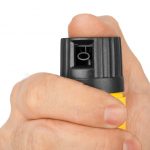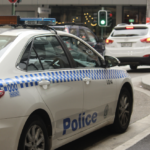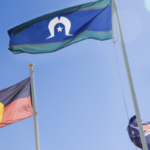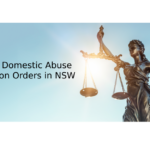Passive Smoking Defence Exposes Flawed Drug Driving Regime
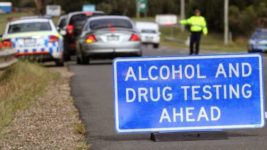
Magistrate David Heilpern has delivered yet another landmark ruling that reveals the shonky logic underlying the drug driving regime in NSW. The Lismore magistrate accepted last month that a woman tested positive to cannabis because of passive smoking.
Nicole Spackman was found not guilty of drug driving after testing positive, after testifying she hadn’t smoked cannabis for weeks prior to being pulled over, but had visited a terminally ill friend who’d been smoking for medicinal purposes in front of her.
Besides there being no evidence to show otherwise, the reason Ms Spackman’s claim is so plausible is that a positive reading can result from minute traces of THC – the psychoactive ingredient of cannabis – being in a driver’s system.
Unlike random breath testing, that checks for levels of alcohol in the blood, roadside drug testing detects the presence of any THC, a substance that can remain in the system for weeks. This means there’s no way of ascertaining if a driver is impaired and poses a danger, or whether they smoked a joint a week prior.
Devoid of justice
“If you can be prosecuted for a criminal offence simply because you are sitting and giving comfort to a friend or a family member who is using medicinal cannabis,” remarked NSW Greens MLC David Shoebridge, “that surely is a law with serious shortcomings.”
“This is yet another illustration, and perhaps one of the clearest, of how flawed the policy framework is for drug driving in NSW,” the Greens justice spokesperson told Sydney Criminal Lawyers.
Sydney University’s Lambert Initiative has recently carried out a study that showed the roadside saliva testing used in NSW gets it wrong more than 20 percent of the time when it comes to THC. This includes false positives, as well as people who are under the influence testing negatively.
The institute released its findings just days after drug driving laws changed, so drivers who test positive for THC and three other drugs now automatically lose their licence for three months and receive a fine – rather than going to court – following a positive confirmation test from a laboratory.
“The fact that up to 20 percent of people losing their licence may be victims of a false positive should trouble everybody who is concerned about fair and just road safety laws,” Mr Shoebridge stressed.
The passive smoking acquittal
In regard to the recent passive smoking ruling, Sydney Criminal Lawyers principal Ugur Nedim explained it highlights the honest and reasonable mistake of fact defence available in cases of drug driving, which is a strict liability offence, meaning intent or negligence doesn’t have to be proven.
According to Mr Nedim, a driver who “honestly believed on reasonable grounds” that they had no THC in their system at the time of driving can found not guilty if it’s established “on the balance of probabilities” – more than 50 percent – that this was actually the case.
“The significance is that drivers who have not smoked cannabis at all – or have not smoked for several days – can make formal representations to police requesting the withdrawal of the charge, or if police proceed regardless, defend the case in court,” the lawyer made clear.
And as for the ruling’s impact, Mr Nedim asserts that more charged drivers and their lawyers “will make these representations – formal letters requesting the withdrawal of charges – and/or defend drug driving charges in court”.
Devastating rural communities
“People are furious about it, because it has nothing to do with impairment,” Nimbin HEMP Embassy and Australian HEMP Party president Michael Balderstone said. And he pointed out that “in the country especially” the losing of a driver licence is devastating.
Despite criticisms of the testing back in 2015, Baird announced he was increasing roadside drug tests to 97,000 a year by 2017. And now, Berejiklian is doubling that with 200,000 annually as of next year. And the Northern Rivers region has long been a major flashpoint of this blitz.
“The judiciary is sick of it. They realise it’s unfair,” long-time critic of the regime Balderstone said over the phone. “I suspect that’s part of why they’ve now changed the law, so it’s an automatic loss of licence, and you bypass the courts, because people were being let off.”
Prior to the changing of the law, 36 percent of drivers going before the courts kept their licences, as magistrates actually listen to the circumstances of cases and realise that innocent mistakes are being made.
Challenging an unfair charge
Mr Nedim said drivers being penalised for “having minute traces of THC in their bloodstream” was clearly unfair. And he added that “Magistrate Heilpern is quite correct when he says, ‘scientists do not know everything about THC and its rate and method of absorption’”.
The magistrate made another game-changing ruling back in February 2016, when he found Joseph Carrall not guilty of drug driving, as he’d last smoked cannabis nine days prior to testing. Carrall had followed the advice of a police officer in waiting that long before driving after he’d last smoked.
In cases where drivers test positive, but aren’t intoxicated, Mr Nedim would advise pleading not guilty. If police proceeded with charges following a representation calling for them to be withdrawn based on a client’s statement, he’d defend the matter in court as an honest and reasonable mistake.
A just and lifesaving regime
Mr Shoebridge said that what he finds so frustrating is that a drug driving regime that actually tested drivers for scientifically proven impairment levels of all drugs that are “likely to cause actual impaired driving” would get 100 percent public and political support.
And a system like this has been operating in Norway since 2012. Police over there test drivers for verified impairment levels of 20 legal and illegal non-alcohol drugs, including prescription benzodiazepines, as well as the four illicit substances NSW police are testing people for at present.
“There is a clear answer to this,” Mr Shoebridge concluded. “It is an answer that will unite us politically and will make our lives safer. And that is why it is so frustrating the government is committed to its broken model.”
Going to court for a traffic offence?
If you are going to court for a traffic offence, call or email Sydney Criminal Lawyers anytime to arrange a free first consultation with an experienced, specialist traffic lawyer who will accurately advise you of your options, the best way forward, and fight for the optimal outcome in your specific situation.


